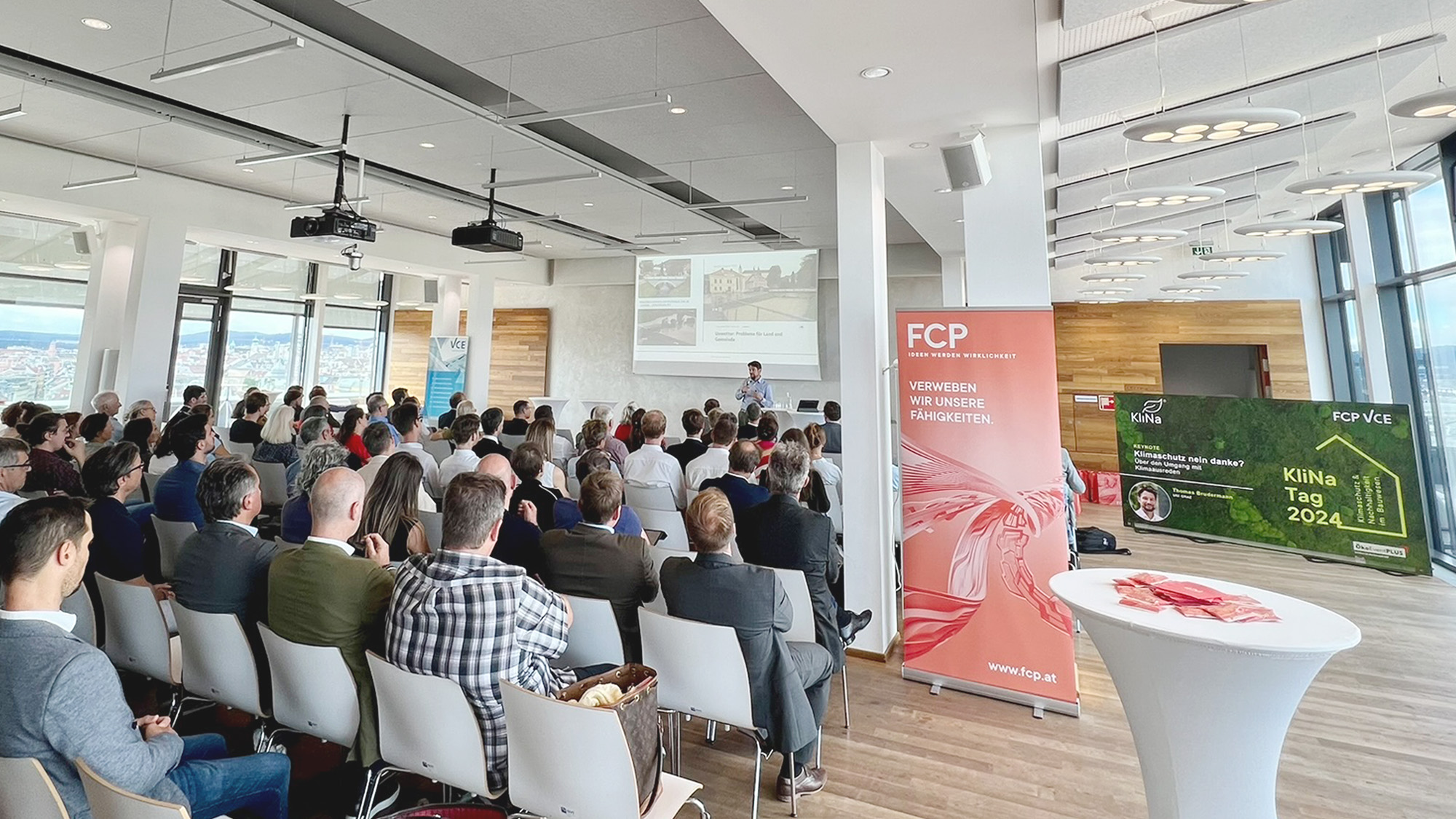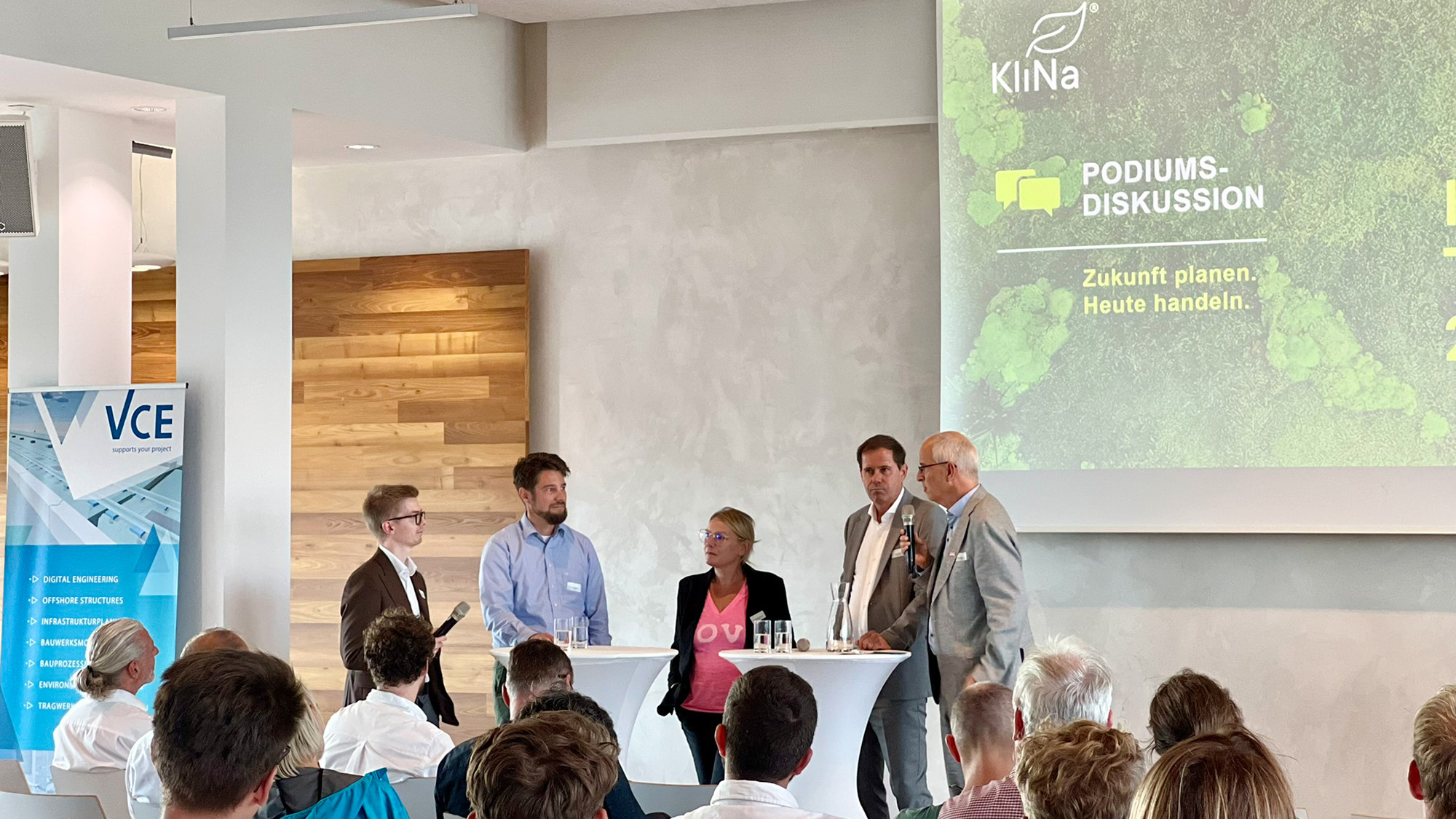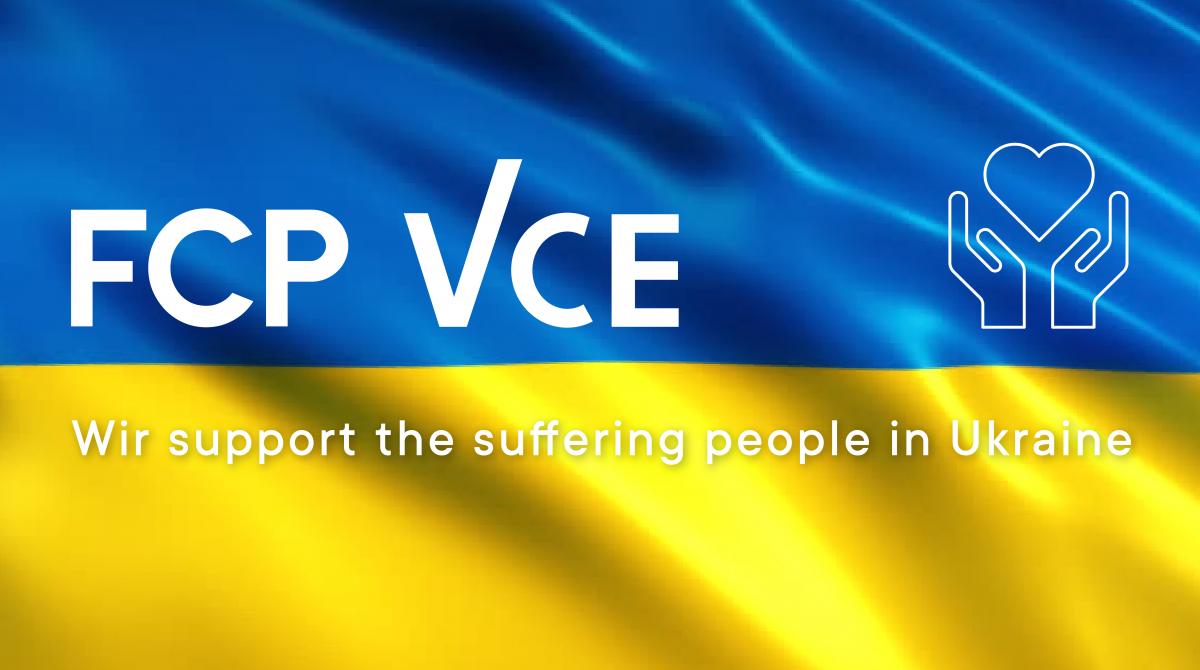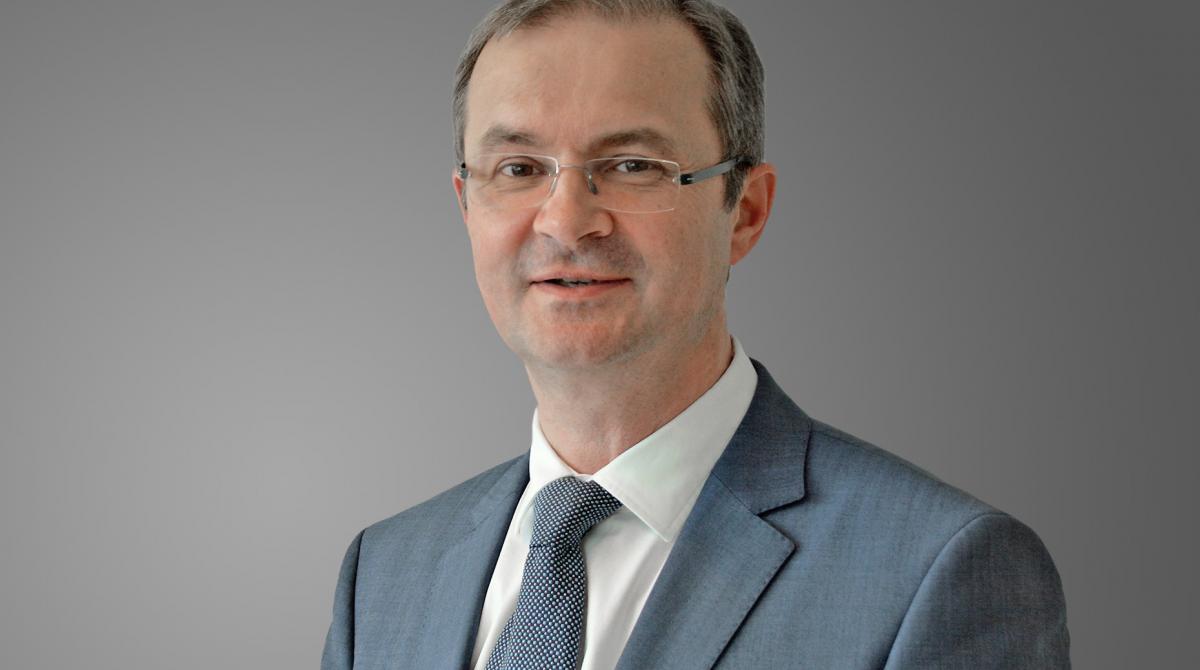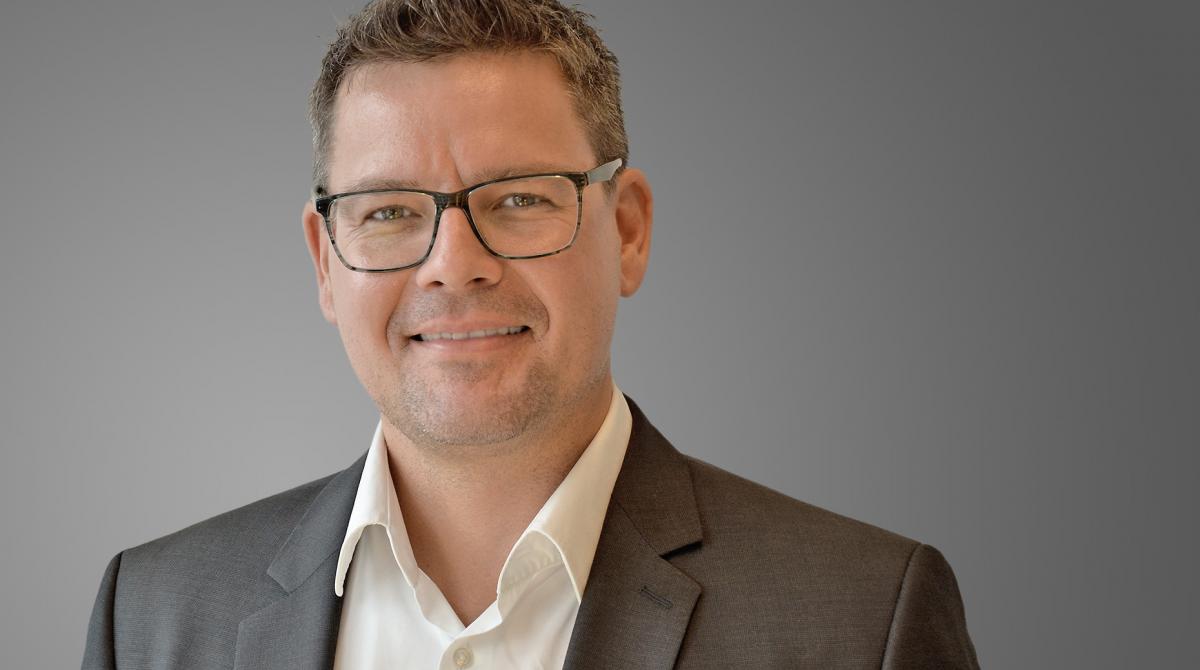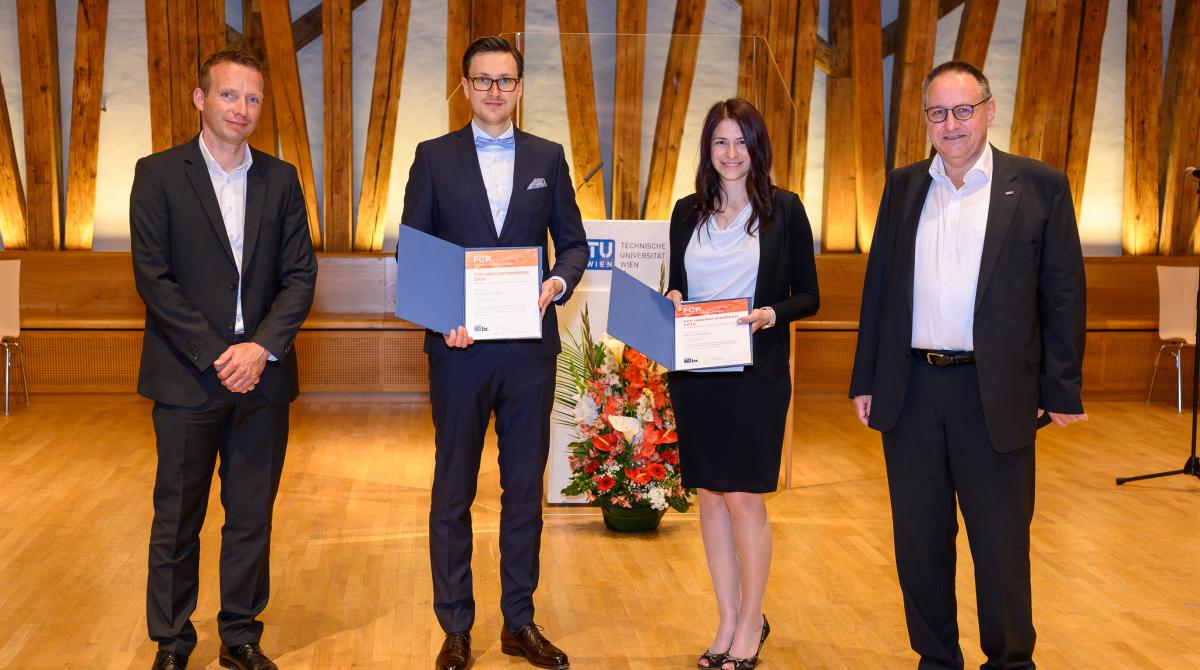KliNa Day 2024: Planning for the Future. Acting Today.
A variety of keynote presentations as building blocks for a more sustainable future
On September 10, 2024, the third KliNa Day took place at the TUtheSky of the Technical University of Vienna, organized by FCP.VCE. With over 110 participants, KliNa Day has once again established itself as a significant platform where experts and interested parties exchange ideas on climate-friendly construction and actively shape the future of the construction industry.
Günther Achs, Managing Partner of the civil engineering firms FCP and VCE, welcomed the guests and highlighted the development of the KliNa Initiative since its founding in 2020 in his opening speech. "It is impressive to see how this initiative has evolved and the momentum it has created in our industry," Achs emphasized, stressing the importance of this year's theme, "Planning for the Future. Acting Today." He underscored the need not only to dream of a better future but to actively shape it.
The event began with a keynote by Professor Thomas Brudermann from the University of Graz on "Dealing with Climate Excuses." Throughout the day, a colorful array of presentations provided exciting insights into various aspects of climate-friendly construction.
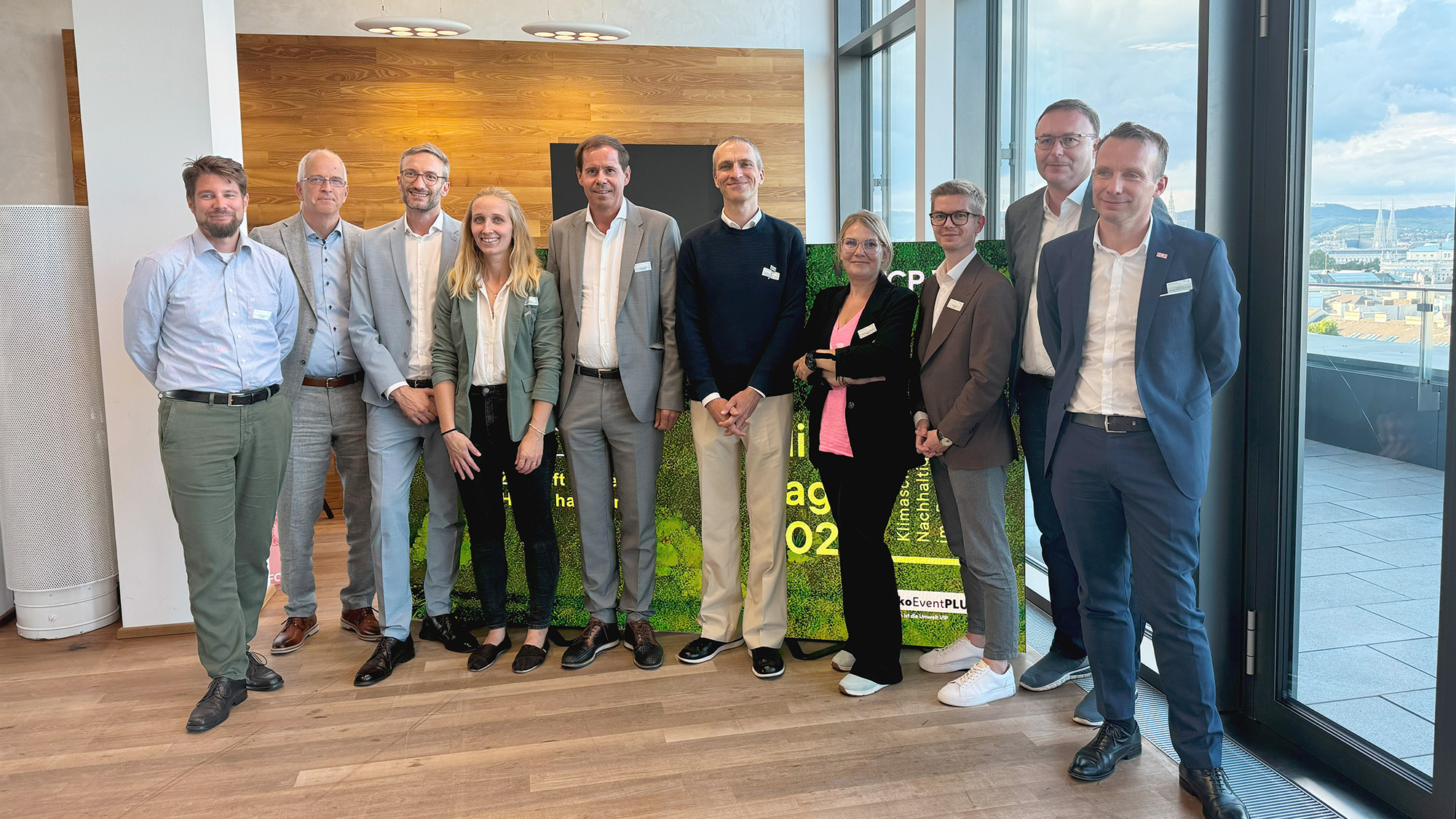
Johannes Horvath (Holcim Austria GmbH) presented the transformation of the cement industry in "Race to Zero," while Robert Veit-Egerer (VCE) discussed the ecological realignment of infrastructure construction. Peter Furtner (VCE) demonstrated how offshore wind power can be harnessed as a clean energy source for the future. In the field of building construction, Franziska Fischer (FCP) explored the EU taxonomy, Tobias Huber (TU Vienna) introduced material-efficient ribbed slabs, and Daniela Cochlár and Thomas Schuster (Wiener Wohnen) presented a pilot project for decarbonizing residential buildings. Christina Koneczny-Erlmoser (Wiener Linien) concluded the presentation series with a report on two projects following the KlimaAktiv Gold Standard.
The Construction Industry Takes Responsibility
The various practical examples of innovative approaches and already tested measures to reduce the CO2 footprint clearly signal that the construction industry is ready to take responsibility – not just in theory, but especially in practice. And not tomorrow, but today.
As diverse as the afternoon's keynote presentations were, so too was the final panel discussion, which impressively demonstrated that the construction industry faces not only ecological but also economic and social challenges. Thomas Brudermann emphasized that, despite often bleak forecasts, there is hope, as many stakeholders are already actively working towards change. It became clear that change must be driven not only by innovation but by the consistent application of existing solutions.
The Need for Action as a Recurring Theme
Tobias Huber called for "Just do it!" and warned against hiding behind a lack of regulations. This need for action ran like a red thread through the discussion, as the construction industry operates on a global scale, where countries like China are already taking action, while Europe is still debating.
In addition to ecological responsibility, social and economic dimensions also came into focus. Johannes Horvath emphasized that social justice requires equal infrastructure, especially in developing countries that still have much room for growth. The responsibility to actively shape this transformation lies with both politics and business. Of course, this transformation also needs to be appropriately financed. Following developments in the automotive industry, financial incentives in the form of subsidies from policymakers were called for. There was also an appeal to clients not always to choose the cheapest provider but to invest in quality and sustainability for the long term.
Exploring New Paths
The consensus of the discussion: a sustainable future requires a combination of ecological, economic, and social factors, along with the courage to implement them. Responsibility for a sustainable future lies with all parties involved, from policymakers to clients to planners. Brudermann aptly summarized this: "It takes political courage to highlight and try things."
After the official program, participants took the opportunity to network during the certified ÖkoEvent PLUS get-together and ended the day in a relaxed atmosphere with a beautiful view from TUtheSky.
KliNa Day 2024 was once again a great success and provided valuable impetus for a sustainable future. The event once again demonstrated that the construction industry is ready to contribute to climate protection – not just in theory, but especially in practice.
Photo Credit:
Images may be printed free of charge for press purposes with proper attribution (©FCP).
For inquiries:
Mag. Cornelia Riegler
FCP FRITSCH, CHIARI & PARTNER, Civil Engineers GmbH
Press
+43 (1) 90 292 - 1286
criegler@fcp.at
About the KliNa Initiative:
The Climate Protection and Sustainability Initiative in Construction, known as "KliNa," was launched in 2020 by the civil engineering firms FCP and VCE. Its goal is to transform the construction industry toward climate neutrality and sustainability. With the KliNa Day, the initiative offers a platform for the exchange of knowledge and best practices and fosters dialogue between science, business, and politics.
